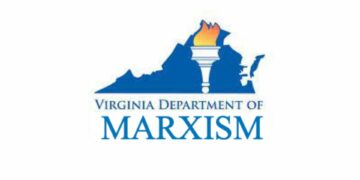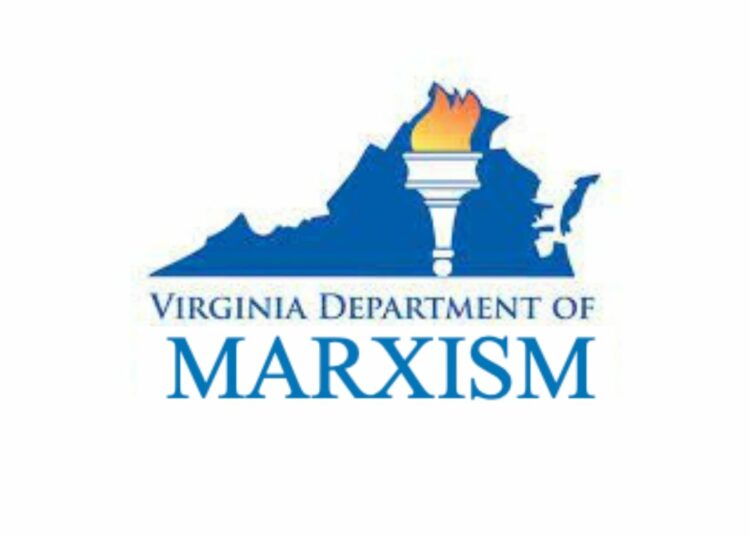Last updated on December 13th, 2021 at 04:41 pm
The Leftists running the Virginia Department of Education are at it again. Besides giving open support to the teaching of radical Critical Race Theory in Virginia public schools, the Virginia Department of Education has now created a Social and Emotional Learning (SEL) Guide to be used by teachers, school nurses, and other school employees that is the dream of radical LGBT and identity politics ideologues.
Titles of resources in the guide include “Implicit Bias,” “Teaching in Support of Black Lives,” “Restorative [Justice] Circle in 4th Grade Classroom,” “Fostering Equity in the Classroom,” “5 Ways to Make Classrooms More Inclusive,” “Inclusive Classroom Practices Poster,” and “GLSEN [Gay, Lesbian and Straight Education Network] Safe Space Book for Educators.” In the “5 Ways to Make Classrooms More inclusive” resource, educators are advised to:
- Let students identify themselves on the first day of class. Ask them to fill out index cards with their preferred name and pronouns, then be sure to update the class list and share that list when there’s a substitute teacher.
- Avoid using gendered language to address students (“ladies and gentlemen,” “boys/girls”). Instead, use words like “scientists,” “readers,” “athletes,” “writers,” “artists,” “scholars,” etc.
- Avoid grouping students by gender. Instead, use birthdays, ice cream preferences, pet preferences, etc.
- If there are all-gender bathrooms, make sure students know where they are and that they are for everyone.
- Make your ally status known by hanging a rainbow flag, sharing your own pronouns and/or supporting the school’s LGBTQ groups.
In the “ADL Lesson Plan Library” resource, several model teaching lessons are presented by the left-wing Anti-Defamation League. The description of the lesson on “Power and Privilege” states:
On August 9, 2014, Michael Brown, an unarmed 18-year-old Black teenager, was shot and killed by a white police officer in Ferguson, Missouri. The officer was not indicted. The story captured the attention of the nation and the media, and in many ways became the beginning of the Black Lives Matter movement. Many stories like this occurred in the following years and continued to capture the attention of the media and the world, leading to a public outcry for reform of law enforcement, the Grand Jury process and the criminal justice system overall. Understanding how power and privilege play a role in our justice system is important to moving the discussion from white privilege discourse to the protection of rights for all people.
For the lesson “Should Corporations Speak Out on Voter Suppression Laws and Other Injustices?”, the description states:
Georgia’s Restrictive Voting Law (SB 202)
In March 2021, the Georgia State Legislature passed a major law (SB 202) that restricts and suppresses voting across the state. Democrats, voting rights groups and other advocates criticized and condemned the law, saying it limits voting rights and it unfairly targets voters of color. They called on and pressured corporations, especially those based in Georgia, to speak out about the new law. While some of these corporations had an initial tepid response, after the law passed and pressure mounted, Coca Cola, Delta, Major League Baseball and others released statements condemning the law.
Clearly both lessons unbiasedly present the facts of each case. Er, not.
In the resource “GLSEN [Gay, Lesbian and Straight Education Network] Safe Space Book for Educators,” teachers are told:
Anti-LGBTQ bias and heteronormativity is all around us. Yet we tend to overlook the subtle biases—the anti-LGBTQ jokes, the exclusion of LGBTQ related-themes in curricula, even anti-LGBTQ name-calling. Subtle or not, bias has the power to hurt and isolate people. Your work as an educator committed to safe and supportive learning environments for all students includes recognizing and challenging your own anti-LGBTQ bias and dismantling any internalized homophobia or transphobia that you may hold.
The resource then gives a nod to identity politics and intersectionality (or “being a member of more than one oppressed class”):
Individuals in the LGBTQ community not only hold LGBTQ identities but are also people of color, people with disabilities, immigrants, and people experiencing homelessness. Being LGBTQ is not a monolithic experience and neither are the needs to approach multiple forms of oppression within the community. Allyship consists of challenging the multiplicity of oppressive experiences, including racism, genderism, sexism, ableism, etc. that these students experience.
The resource also says that its Safe Space Kit discusses ways to bring LGBTQ visibility into your curriculum.
So there you have it. The leftist Virginia Department of Education is trying force teachers and other school personnel to support radical LGBT and identity politics policies. Virginia’s Education Department deliberately turned a blind eye to the massive parent revolts and the red Republican wave that swept across the state this past November in large measure due to opposition of said policies. But for leftists, reality will never thwart their quest to impose a Marxist agenda. Let’s hope that the parent revolt in Virginia grows even more and throws this radical educator guide into the trash bin of history.




















Discussion about this post